Queer Faith Stories
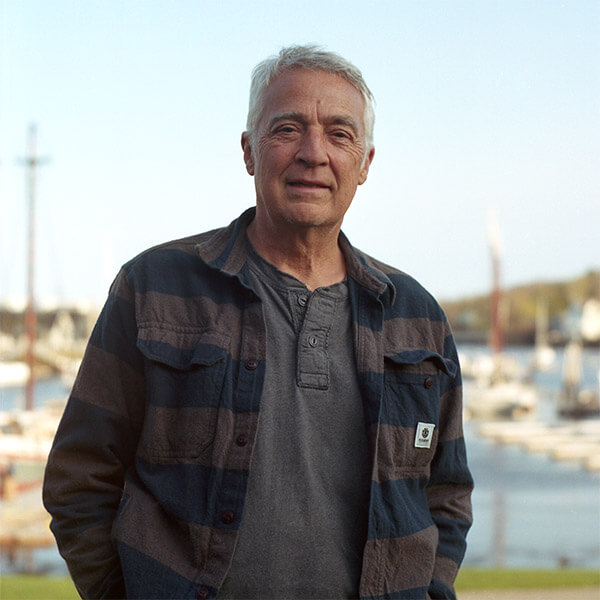
Bob Garcia
First Congregational Church of Camden, UCC
I knew from an early age that I was different. Only in my teens did being gay come into my lexicon. I was raised by a devout Catholic mother, who, while she struggled to understand my sexual orientation, always expressed unconditional love for me. It was my mother’s faith married to her love for me that enabled me, much later as an adult, to bridge my queer identity and my own faith. I see my queerness as another expression of variation in our species, in an evolutionary context. I can remember nuns teaching me that evolution was completely consistent with God, whose grace and capacity was limitless. The church’s prohibition against being queer was a great turnoff to me until I found a welcoming place, where I was embraced as a child of God—other people of faith showed me how to live as a queer person in my faith tradition. Once again love lit the way.
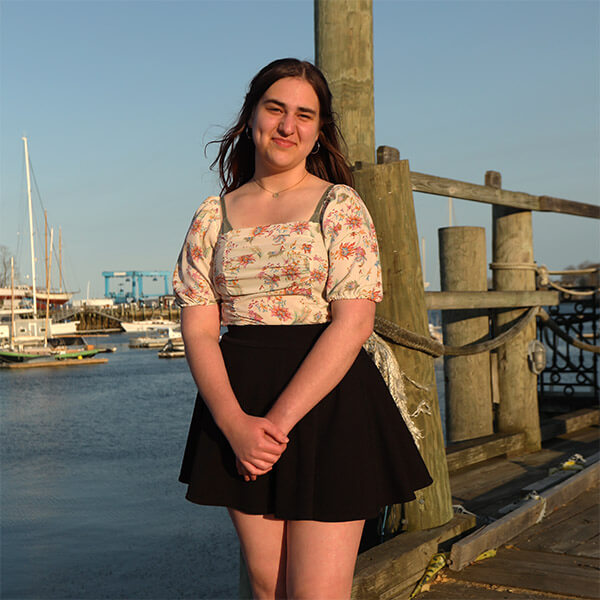
Anna Weber
First Congregational Church of Camden, UCC
When you’re in fifth grade, you tend to believe people. 10-year-olds are, in my experience, relatively trusting. They have not yet been slapped in the face by the cold lies of the world. So, when I was in fifth grade and a kid no more than a year older than myself told me I was going to Hell because I said I liked guys and girls, I believed him. I didn’t quite understand why, but I figured what he was saying must be true. I couldn’t exactly conceptualize why who I liked or loved would have a negative impact on my relationship with God solely because of their gender identity, but this kid had, by my childhood standard, quite convincingly laid down the facts. That moment was the first time I had ever been told that God may choose who receives Their “unconditional” love; the first time anyone had ever said to me that there was something inherently sinful in being queer. And it was the moment I finally began to understand why the word “lesbian” was an insult on the playground.
While I have been lucky to grow up in a church that welcomes anyone and everyone, this did not prevent me from questioning the validity of my faith. My sexuality brought with it the fear that I was no longer a “good” Christian, no longer loved by God. But, interactions with people who believe I must repent didn’t not help my understanding of what it meant to be a Christian, what it meant to be loved by God. It was a welcoming church community that led me to explore the meanings behind scripture openly, safe to discuss topics that, in other communities, may be entirely closed off. Conversation and studying scripture within my church reveal how sexuality and my faith can joyfully coexist. I know I am beloved. It is a feeling, a warmth, a strength, and a hope. And I truly believe that I am no closer to God, no more loved by God, than when I am completely, wholeheartedly, and unapologetically true to myself.
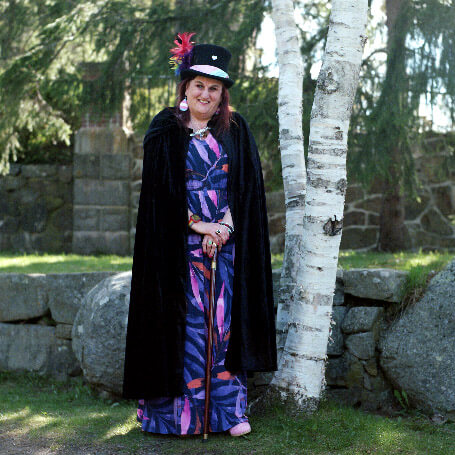
Rachel Genthner
Broad Bay Congregational United Church of Christ
I believe God is beyond gender. We are all just human. Our gender is deep within our souls. I was born with anatomy that visually looks male but my soul is and always has been female. I am a transsexual lesbian woman. But really, I am human.
I was raised in the Church, sung in the choir, and was active in all the youth groups. The Church saw me as male when I knew I was female. I was baptized when I was about 11. Yet when I came out as a woman at age 38, my Baptist church told me that I could no longer be a member. But I knew that God loves me and that I am female.
After gender reassignment surgery, I had a holy experience where I re-entered my body and was surrounded by a big orb of calm and peaceful light. God has never forsaken me. People have shunned me and forsaken me.
After my surgery, I was baptized as Rachel, God’s beloved daughter, at Broad Bay UCC in Waldoboro Maine. It was so moving—I still cry when I think about it. I felt a sense of completion and the Holy Spirit came alive in me.
I love who I am and I love God with all my heart and soul. God is my strength and my light; God is my existence. I know when I saw the light after my surgery, God was there telling me I was going to be OK. Then the light disappeared, and I went back into my body and my life began. I know the true self, the honest self visually and spiritually.
I searched for a long time to find a church that accepts me. It is so good to be part of a church that welcomes all. I hope that all LGBTQIA+ people can find God’s love.
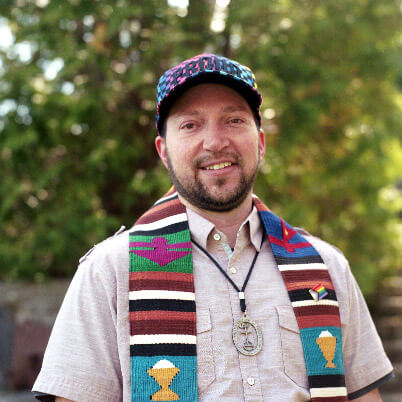
Rev. Dr. Malcolm Himschoot
United Church of Christ, serving the Church of Universal Fellowship, Orono, ME
I came to know God as my Creator, when I transitioned and made my body a home in the early 2000s. I was a young adult who was tired of being lonely, ready to shed my internalized phobia, and so I went deeper into spirituality. I realized we all have a part in the ongoing creation that is all around us, that God’s Spirit makes possible. So I recognized in God a very creative Creator! There is warmth and celebration between us that was never jeopardized by my being a transgender man.
In 2004 a film-maker used my story as a religious person to tell that message to the world. The world wasn’t ready for it—but back then more people responded with pity and loathing, rather than fear and politicized aggression, like today. The film was called Call Me Malcolm, and it led to countless connections and micro-liberations for non-binary and trans people of faith. It was one small part of the nationwide Open and Affirming movement among Christian churches: a part of an ongoing international conversation on human sexuality.
My hope is that more and more parents realize they don’t have to reject their queer kid in order to keep their faith, and that queer kids continue to be adventurous in courage and compassion, for themselves and for others. It’s worth it! Life is beautiful.
I like to think of hybrid and liminal spaces now as possibilities for wholeness and embodied transformation. I love how the Christian tradition—from incarnation through resurrection—poses a narrative arc ‘queering’ the supposed binary of heaven and earth. I’m a theology nerd, a poet, and a pastor of the United Church of Christ, serving the Church of Universal Fellowship in Orono, Maine. I also have a role in leadership education through the Maine School of Ministry.
No religious tradition will ever be perfect—but perfection isn’t really the point. Finding sacred resources and practicing ways of love and justice in community is a lifelong calling.
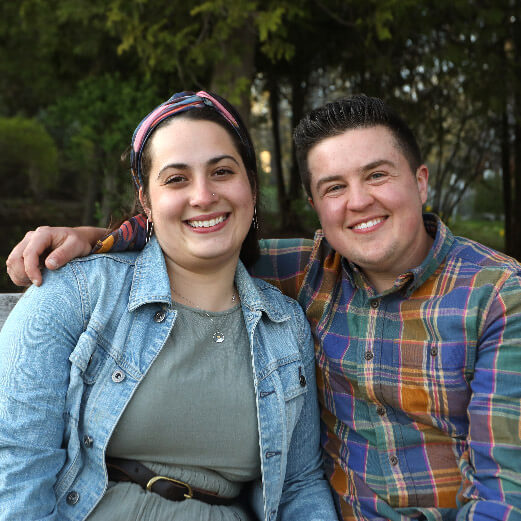
Reflections on Queerness
by Kiah Baxter (she/her) and Carter Baxter (he/they)
Part I
God is Queer
Counter to culture,
Teaching us to love,
Across difference.
God is expanding Love,
And beyond human understanding.
God shows Themself in the transitions.
In the process of becoming
In the liminal space of life
We meet God in the ever expanding
Ripples of love.
In this space of emergence
Change must come
In new names
And in bodies unashamed to love.
The boldness of God’s Love
Comes in the tenderness of loving
Human beings for the wholeness
Of who we are.
By embracing the wholeness of who we are
We are embracing God’s creation.
God’s Love.
Part II
In the beginning, God made light and darkness…
And twilight, dusk, eclipses, and dawn.
Watery depths met mountains and plains
In estuaries, mangrove forests, and marshlands.
Plants, animals, and fungi, in their multitudes, forged their own paths,
Journeying in groups, pairs, and solo,
Brimming with possibility.
Each bearing wisdom to share.
Each worthy.
And God saw that it was good.
No matter your path,
You’re in good company.
And you are good.
Part III
When we learn to love ourselves with the fullness of God’s grace, we can see the image of God all around us. Witnessing God in each other, the holy resides in each of us as part of God’s Creation. In this place, love can expand.
This expanding love can be the love that we learn in church from our birth. If we grow up in LGBTQ-affirming church communities, church can be a place where we know that we’re loved fully for who we are. Church can be a place of deep belonging – if we, the Church, make it so.
Churches that surround queer folks with support and love, who protest alongside us for change, who celebrate with us, and who know what’s at stake for our families, are the hands and feet of Christ. When we prepare places at the table for queer people, we do so in remembrance of the one who teaches us to love courageously and extravagantly in God’s name.
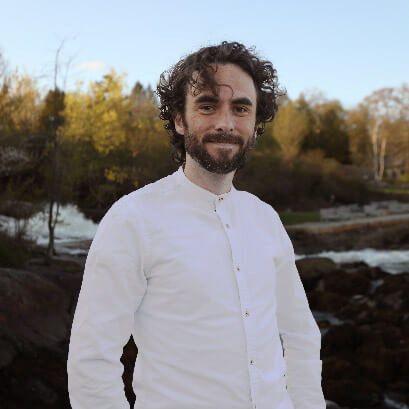
What gives you hope?
Reflection by Rev. Sean Patrick Coady
“That’s so gay.”
As a kid growing up in the 90’s, this expression was never far from my ears. It seemed to be woven into the fabric of society, though I heard it most often in the hallways of school. When I began to realize I was gay, it’s no wonder I struggled to accept it: gay was a bad word. The homophobia of my youth seeped into my spirit, marinating me in a slurry of self-loathing. And because I hardly had any queer classmates or friends, I felt so alone.
A recent Gallup poll found that a record 7.1% of adults in the U.S. now identify as LGBTQ+, which has doubled since 2012, the year I graduated college. Even more remarkably, this poll revealed that an astounding 21% of Generation Z Americans who have reached adulthood identify as queer. This gives me a great deal of hope. Often times, adults look at youth and see the future. And while it is true that generations age up, enter the job market, and take on more social and economic power, I think it is a mistake to limit youth to the future; they are part of the now.
I love that young adults are claiming their authentic sexualities and genders in record numbers these days, it makes me giddy. I am inspired by their courage and conviction, and glad that the barriers of self-acceptance and breaking down. I am proud to be part of this growing queer community, strengthened by the newest and youngest among us. And I am grateful for the ways this bold new generation is renewing my spirit with hope.
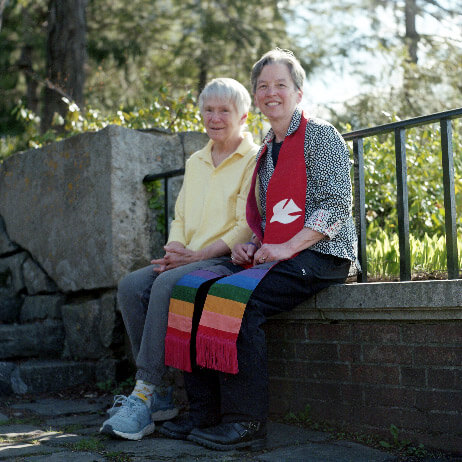
Rev. TJ Mack
Union Congregational Church of Hancock, United Church of Christ
Queer Pride Month is one effort to shine a positive light on the diversity and richness of God’s people. Lesbian, gay, homosexual, heterosexual, bisexual, pansexual, asexual, transgender, cisgender, gender fluid, gender neutral are all created in the image of God (Genesis 1:26) and are equally loved by God our Creator.
One of the guiding tenets in my life is a verse from the Hebrew prophet, Micah. “God has told you, O mortal, what is good; and what does the Lord require of you but to do justice, and to love kindness, and to walk humbly with your God?” (Micah 6:8) Another guiding tenet is from one of the gospels, “You shall love the Lord your God with all your heart and with all your soul and with all your mind.’ This is the greatest and first commandment. And a second is like it: ‘You shall love your neighbor as yourself.” (Matthew 22:37-39)
These biblical passages help to inform who I am and what I believe. The focus of these teachings is on justice, kindness, humility, and love. Our Holy Scriptures inform us that humans are made in God’s image. I interpret that to mean all humans are made in God’s image, not some humans.
Is God Queer? Is God Cisgender? Is God Transgender? Yes. Yes. Yes. If we are… it is because God is. We are all made in God’s image. We are all on the beautiful spectrum of Godself. God declared what God made good. All of it. All of us. Thankfully, that message imprinted on my heart at an early age. I am not a queer pastor; I am a pastor who happens to be queer. We are not queer humans; we are humans who happen to be queer, in all the wonderful diversity that encompasses.
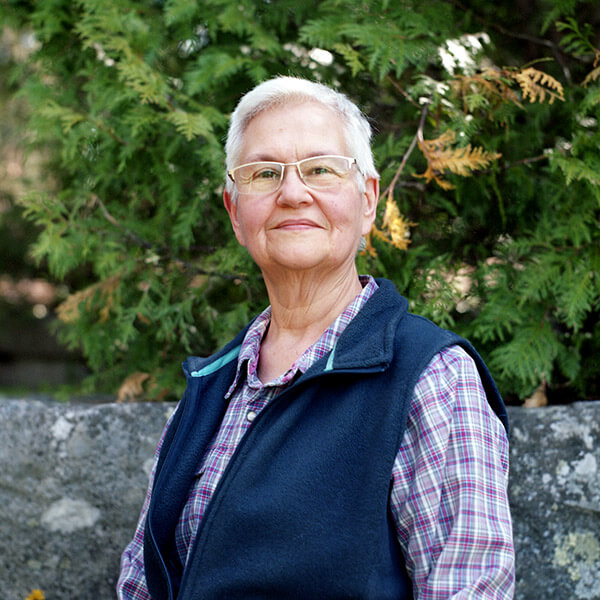
Blessed by Our Wounds
by Sarah E. Reynolds
First Congregational Church of Camden, UCC
God is alive when we meet each other as we are and let others be however they are—when we simply acknowledge, celebrate, mourn and share our stories of the wonder, terror, beauty and struggle of being human.
I have long felt that being a lesbian is a blessing in my life, not only because of the wonderful women I have lived with and loved and been friends with, but also because it opens me to the pain that is also part of living.
I’m reminded of the story of Jacob in the wilderness from Genesis. Jacob is going to meet his brother, Esau. On the way, he camps in the rough. During the night, an angel comes to him and wrestles with him. Somehow, the two are evenly matched and neither will give way. All night long, they struggle in each other’s grip. After a long time, the angel throws Jacob’s hip out of joint. Towards daybreak, the angel says, “Let me go, daybreak is coming.” Jacob replies, “Not until you give me a blessing.” The angel tells him his name will no longer be “Jacob,” but “Israel,” which means “God-wrestler,” and blesses him.
So Jacob leaves the encounter having struggled with God and received a blessing, but also with a limp. You could say that our blessings often come out of our wounds. I am so grateful to have the capacity to give and receive love, and so glad that it has brought wonderful people into my life and enabled me to make life-giving connections. Only when I am aware of my need and honest about it—when I am vulnerable—can I receive love. My queerness is part of my vulnerability, which is the truest, greatest blessing.
As a queer person of faith, I feel called to witness to Jesus’ love for the marginalized, to remind people of goodwill that the love of Jesus calls us to do only one thing: draw the circle wider. May it be so.
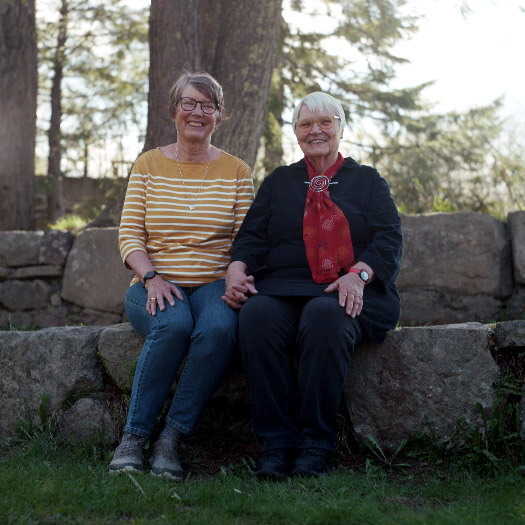
Lucie Bauer and Annie Kiermaier
The First Universalist Church in Rockland, ME
We brought our lives together in front of over a hundred witnesses in 1996 with a ceremony in our front yard led by a Unitarian Universalist minister and an Episcopal priest. We had to call it a “commitment ceremony” because at the time two women were not legally allowed to marry. In the Quaker tradition, we asked our witnesses to sign a document affirming, “we join together to celebrate the union of Lucie Bauer and Annie Kiermaier and to bear witness to their sacred vows.” At the end of our vows, we proclaimed together, “May our hearts be joined in service to the Beloved. May our love shine forth for the benefit of those whose lives we touch.” In the years since, we have been very public and politically active in hopes of touching the lives of as many people as we can. We have lived openly as a loving couple and raised two children together which likely has touched more people than we realize. Both publicly and in our personal lives we have worked to increase the love of queerness in the world. We believe the actions we take to be our ministry in the world. We are blessed to be loved and surrounded by our congregation at the First Universalist Church in Rockland, who give us the courage to live our lives as an “out” lesbian couple. We are uplifted by our Unitarian Universalist faith in the inherent worth and dignity of all beings and support of justice and equity for all.
We are heartened by the many positive changes we have witnessed since 1996. We are so proud that the current generation of queer youth are teaching all of us to expand our understanding of gender identity and expression. There is still a lot of hard work ahead, but we’ve been at this long enough to know that with faith and perseverance the moral arc of the universe does indeed bend towards justice.
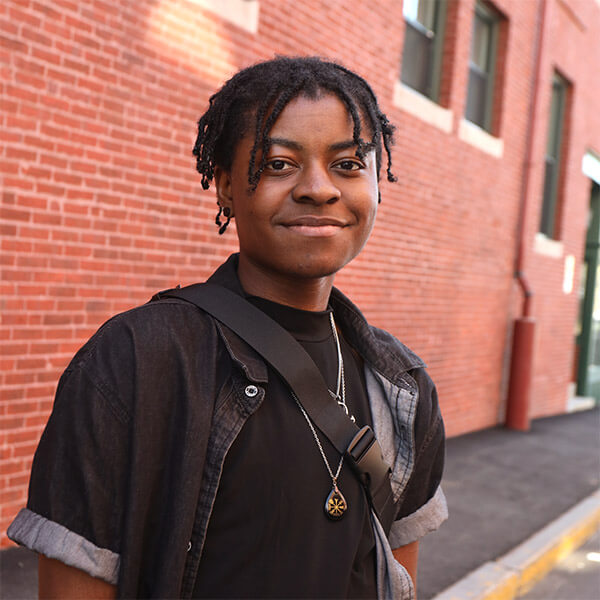
Lucious K. Finston-Fox
First Congregational Church of Camden, UCC
I was always told that God was everywhere, that God was in everything. I believe it. I believe God is both the sky and the sea. God is both the rain and the sun. God is both the colossal whale and the meager mouse. God is both the blooming flowers in spring and the falling leaves in autumn. God is both male and female. Yet God is also neither male nor female. God is also love. I believe God is present in love. God is present in all love. Whether it be the love of a parent for a child, or the love of a person for a friend. Or, the love of a man for a woman. Or, the love of a woman for another woman and in the love of a man for another man. God is boundless. God is limitless and ever changing.
I am made in God’s image. We all are. Yet we do not all have the same image. God gave us free will and minds to think for ourselves. I like to think that somewhere along the creation process God decided to let us have a few creative liberties. There is a great quote that has been floating around that speaks to this wonderfully: “God blessed me by making me transgender for the same reason God made wheat but not bread and fruit but not wine, so that humanity might share in the act of creation.”
Two-spirit refers to a person who identifies as having both a masculine and a feminine spirit, used by some Indigenous people to describe their sexual, gender and/or spiritual identity. While this is an identity that is used by indigenous people, and I am not an indigenous person, the concept intrigues me. It is a means of directly linking one’s sexuality or gender identity to one’s faith and spirituality. I can’t say I am at a point where I fully love who I am but then again who at my age can? But I am learning and getting closer everyday.